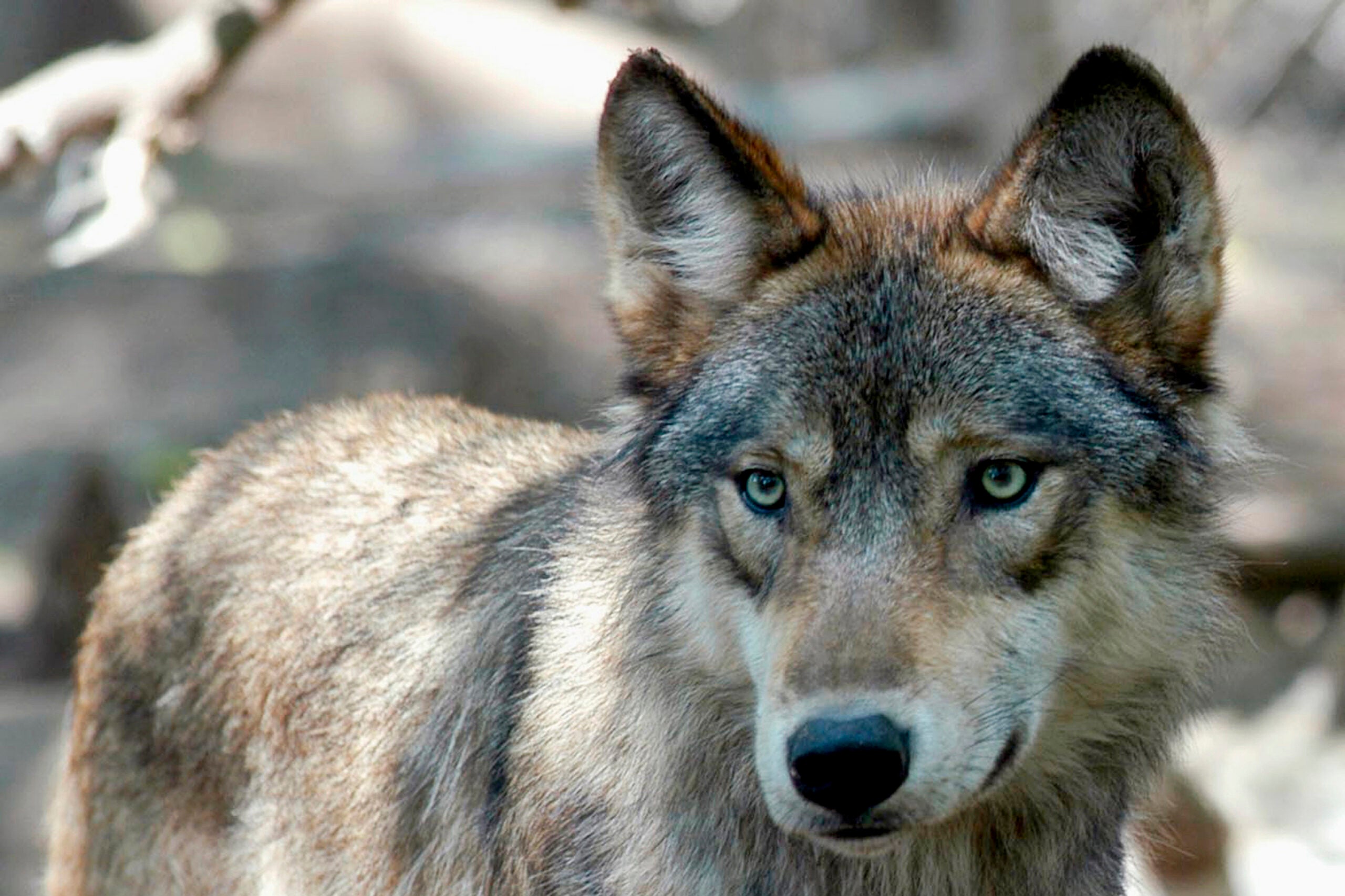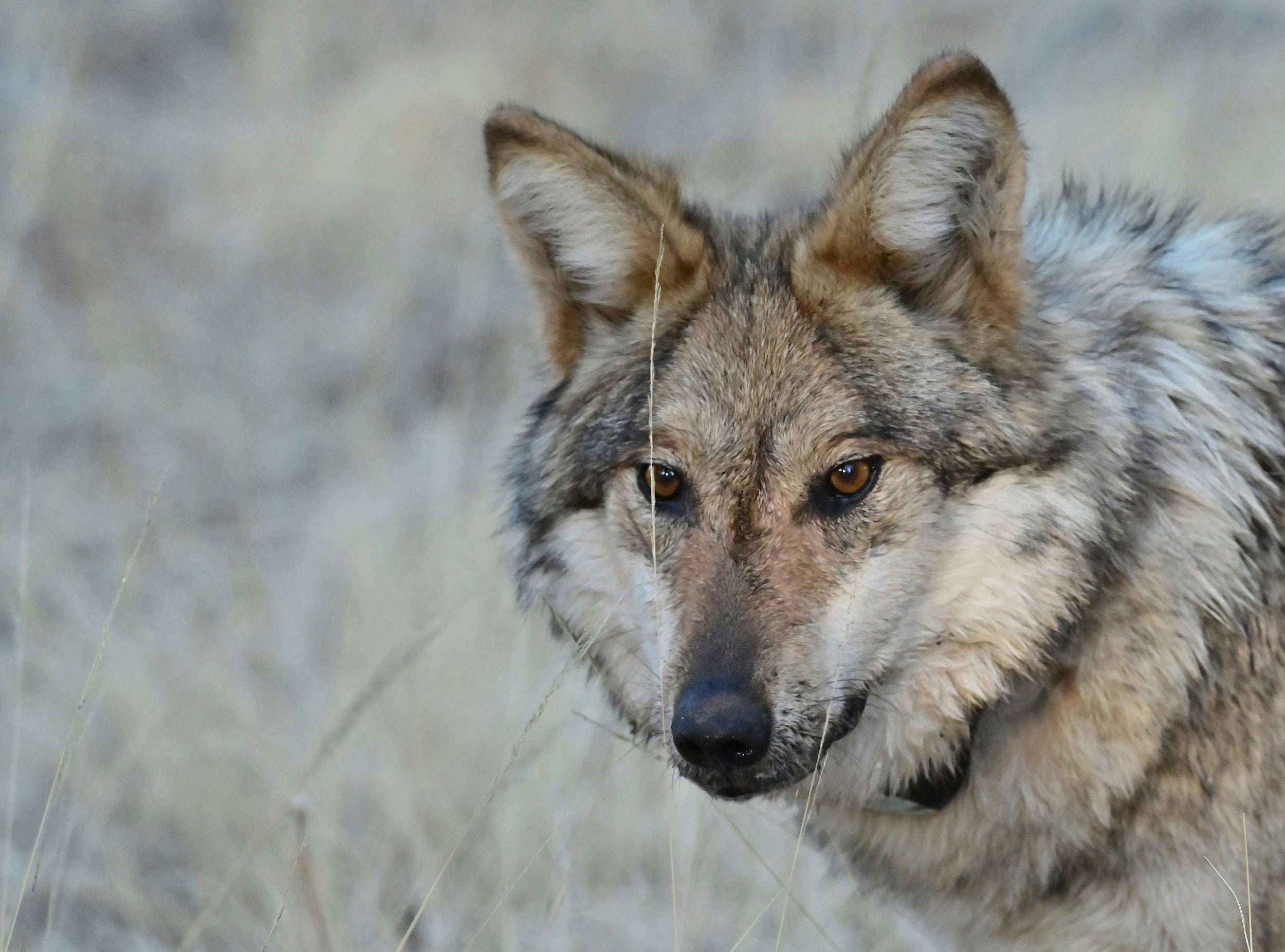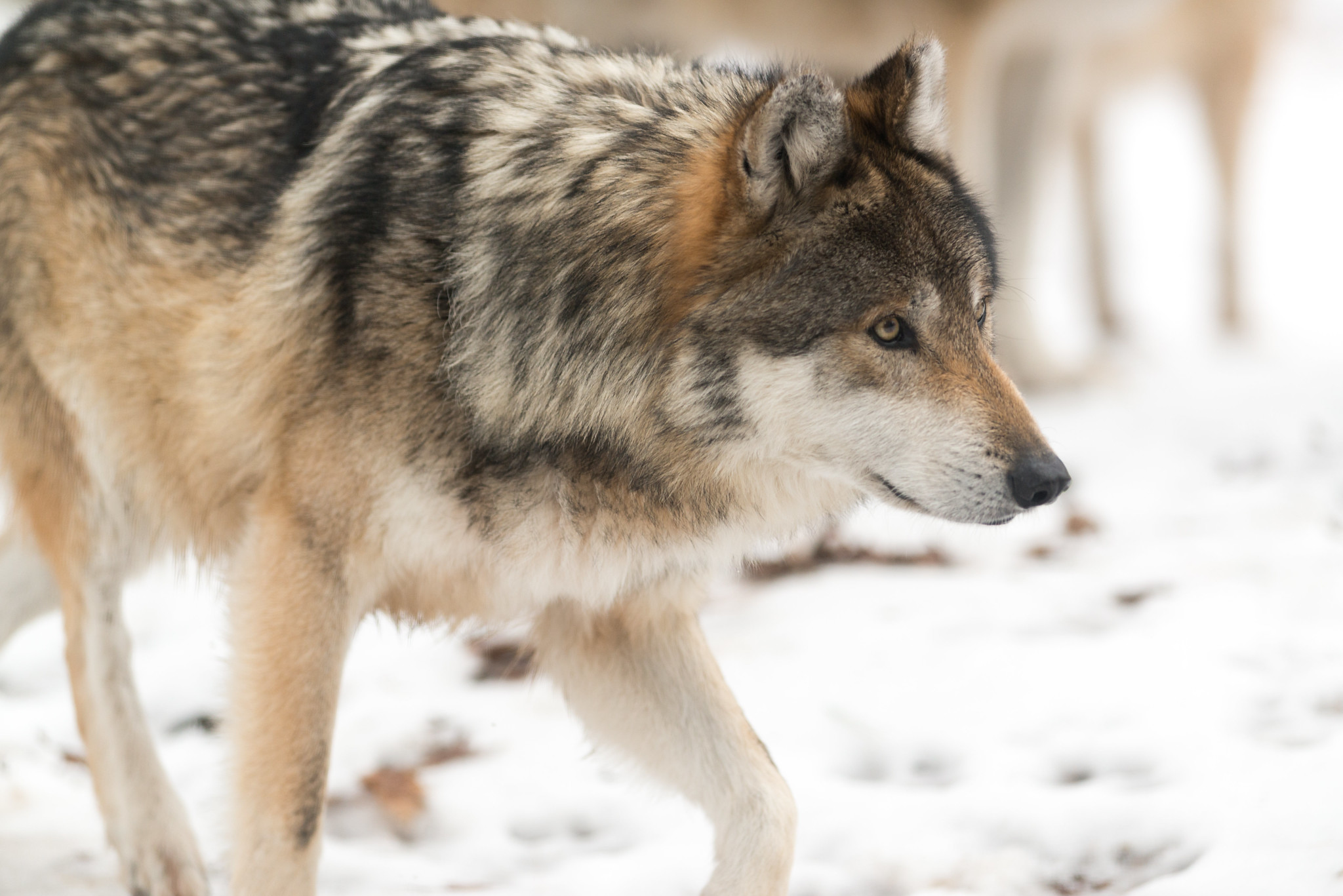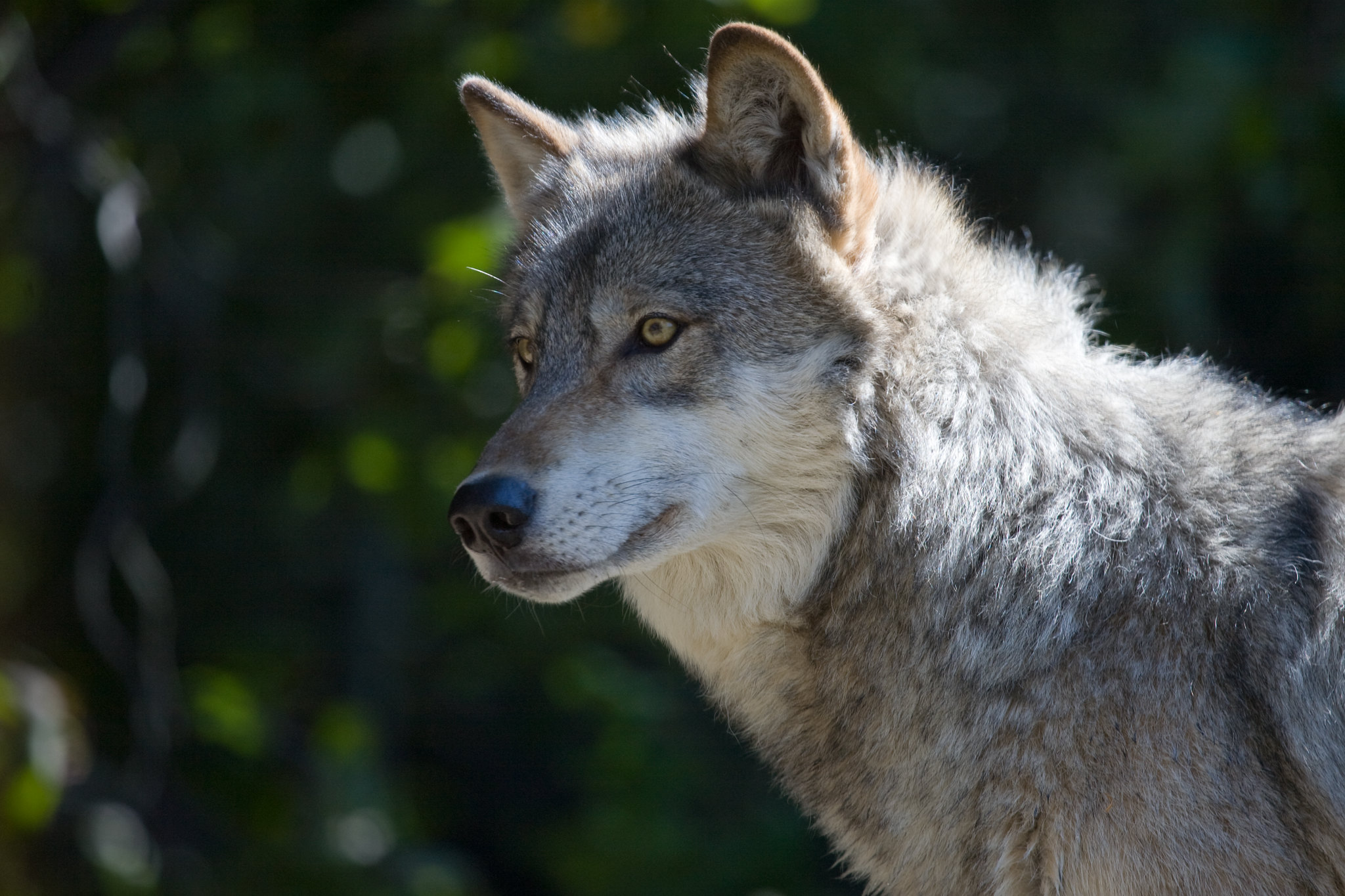A Dane County judge is temporarily barring Wisconsin from holding a wolf hunt and ordering the Wisconsin Department of Natural Resources to set a quota of zero wolves until the agency complies with its own rules.
Dane County Circuit Court Judge Jacob Frost ruled the way the DNR applied Wisconsin’s wolf hunt law is unconstitutional.
In his ruling Friday, Frost said he’s not overruling the state’s wolf hunt law and thinks it can be lawfully applied. But, the judge said the DNR didn’t do that because the agency failed to adopt a permanent rule enforcing the law and update its wolf management plan.
News with a little more humanity
WPR’s “Wisconsin Today” newsletter keeps you connected to the state you love without feeling overwhelmed. No paywall. No agenda. No corporate filter.
“The DNR needs to stop it. They need to actually comply with the law. They need to regulate the hunt. They need to develop a wolf management plan. They need to implement rules so they can regulate the hunt. They need to be part of that oversight process that keeps the law constitutional,” Frost said.
The ruling comes just two weeks before the fall wolf hunt was set to begin on Nov. 6. Former Republican Gov. Scott Walker signed a law in 2012 that requires a wolf hunt each year when the animal isn’t listed as a federally endangered species.
In August, a coalition of wildlife advocacy groups including the Great Lakes Wildlife Alliance filed the lawsuit to stop the fall wolf hunt, saying the law violates the Wisconsin Constitution because permanent rules enforcing the hunt were never adopted.
Melissa Smith, executive director of the alliance, said she’s celebrating the judge’s ruling.
“We do know, and the science proves, and the DNR does not dispute: they do not know the damage that occurred in February,” said Smith. “And we don’t think, because of the lack of rules and emergency rules, that this couldn’t happen again with trappers and hunters this fall.”
Hunters killed nearly double their quota in the February wolf hunt, harvesting 218 wolves in less than 72 hours. The DNR has said the law’s 24-hour notice requirement prior to closing the season, the high number of licenses sold and the use of hunting hounds made it difficult to properly manage the hunt.
Luke Hilgemann, president and CEO of Kansas-based Hunter Nation, said he’s frustrated with the judge’s ruling. He called on Wisconsin Attorney General Josh Kaul and Gov. Tony Evers to immediately appeal the judge’s order so the fall hunt can move forward.
“I think that the laws or the rules are very clear. We have a current wolf management plan in place,” said Hilgemann. “Yes, the wolf management plan needs to be updated. But, at the same time, I think that’s a shallow argument for (the judge) to say that we should just shut down the hunt because we don’t have a set of rules in place. We have a set of rules in place. He just doesn’t agree with them.”
A DNR spokesperson said the agency is reviewing the ruling and declined to comment further.
Wildlife advocacy groups filed the lawsuit after the Natural Resources Board approved a quota of 300 wolves in August, which the DNR pared down to 130 wolves for this fall. Six Wisconsin tribes are arguing in a separate lawsuit that their treaty rights are being violated through state management of wolves, which they say isn’t based on sound biological science.
Gussie Lord, an attorney for the tribes, applauded the judge’s ruling.
“We also understand that it may not be the last word on this issue in the Wisconsin court system,” said Lord, an Earthjustice attorney, in a statement. “We intend to pursue every opportunity to protect the Ojibwe tribes and the Wisconsin wolf population.”
Wisconsin tribes claimed 56 of the 130 wolves that were allowed for harvest prior to the judge’s ruling. The state’s Chippewa tribes view the wolf as a brother and have declined to harvest the animal. A hearing is set in that case for Friday, Oct. 29.
The animal has become a focal point in a battle for control over management between the DNR under the Evers’ administration and the board’s conservative majority appointed by Walker.
The DNR originally planned to hold a single hunt this fall after the Trump administration announced its decision to delist gray wolves across most of the country last year. Hunter Nation sued the DNR in February to force a hunt, and a Jefferson County judge ordered the agency to immediately hold a season, which it did.
Researchers and conservation groups have feared the February wolf hunt and the fall season could dramatically reduce the number of wolves and threaten the sustainability of the state’s population. A recent University of Wisconsin-Madison study concluded that hunters and poachers might have killed a third of the wolf’s population since the animal’s delisting.
Hunters, farmers, tribes and wolf advocates have been at odds over wolf management. Hunters say it’s their right to control a population that has grown from just 25 animals in 1980 to more than 1,100 wolves prior to the February wolf hunt. Farmers and hound owners have pointed to increasing conflicts between wolves, pets and livestock as the population has grown.
Wolf advocacy groups say the law doesn’t give the DNR discretion to properly manage the population.
Tribes and environmental and wildlife groups want the Biden administration to restore protections for the animal nationwide. The administration has defended the delisting as part of a lawsuit challenging the decision.
Gray wolves have been delisted multiple times in the Great Lakes region since 2007. Hunters killed 528 wolves during the three seasons a hunt was held in Wisconsin prior to a federal judge’s ruling that placed the animal back on the endangered species list in 2014.
Wisconsin Public Radio, © Copyright 2025, Board of Regents of the University of Wisconsin System and Wisconsin Educational Communications Board.






